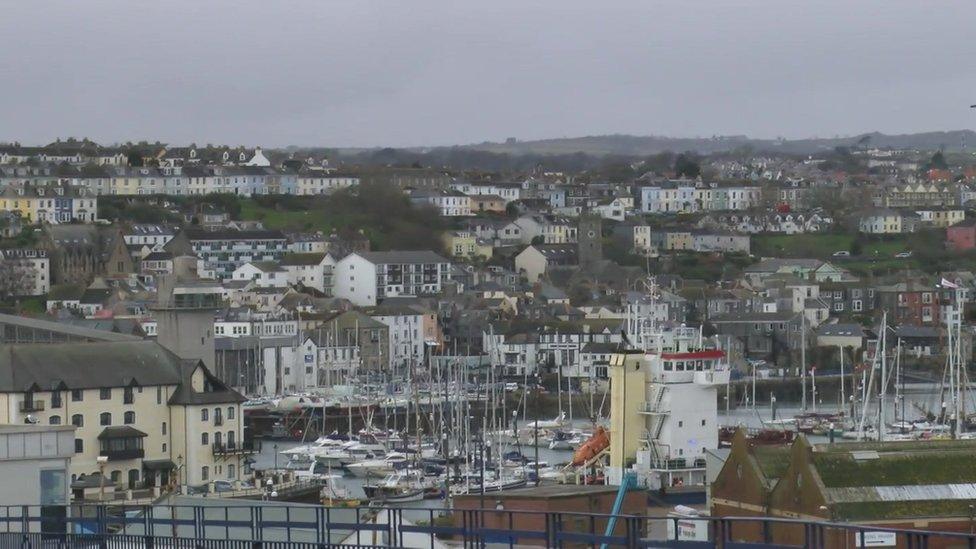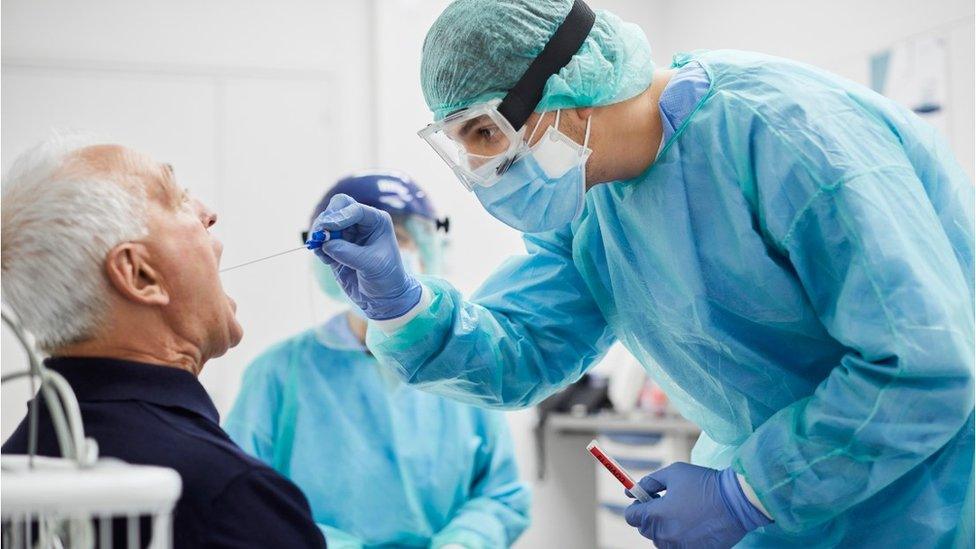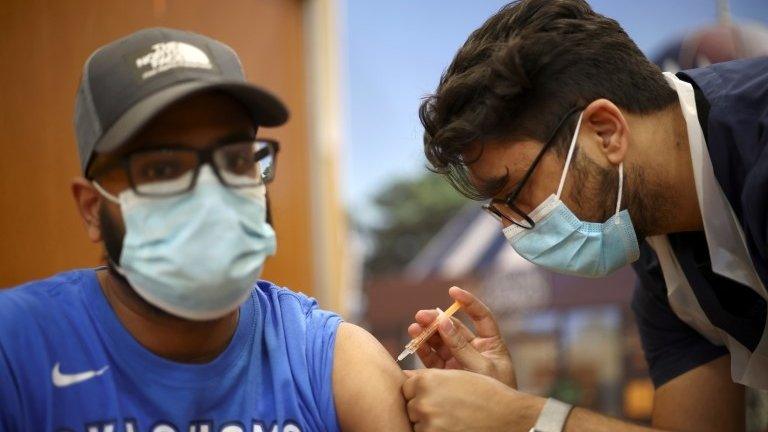Coronavirus: Falmouth and Penryn see spike in cases
- Published

Parts of Falmouth and Penryn have more than twice as many cases as the Cornwall average
People in Falmouth and Penryn are the latest being asked to remain especially aware of coronavirus after a recent spike in cases.
Cornwall Council said the towns were well above the local average for Covid cases of 303 per 100,000 people.
Public health bosses said national restrictions being lifted and increased transmissibility of the Delta variant had contributed to the rise.
High number of visitors recently had also played a part, they added.
Last week, the council warned people in Newquay to take particular care due to high infection rates of 577 per 100,000 people.
The latest figures show rates in the north coast town have continued to climb, to 810 in Newquay West and 923 in Newquay East.
Cornwall Council said the latest figures up it had to 11 August showed cases per 100,000 people in the Falmouth area were:
Falmouth North - 726
Falmouth East - 657
Falmouth West - 537
Falmouth South - 537
Penryn - 696
It said people should "take precautions" after the "sharp increase in community transmission".
Deputy director of public health, Ruth Goldstein, said it was particularly "high holiday hot-spots that attract a lot of young people" that were seeing increases.
She said: "It's what we expect because we know that the younger people have only had one, and in some case no, vaccine; so, unfortunately, it's easier to transmit."

Cornwall Councillor for Falmouth Penwerris Jane Kirkham said figures had been high locally "off-and-on since the main reopening [lifting on restrictions] and the G7, I suppose".
She said: "We do have a younger demographic than a lot of the rest of Cornwall, so I think that has contributed to our numbers, and that we have a lot of visitors here as well."
Ms Goldstein said officials were working with agencies and business to make sure the area is "as Covid-safe as possible".
She added that everyone should maintain good hygiene standards, wear masks, socially distance where necessary, along with getting regularly tested and vaccinated to try and stop its spread.
She said: "We just want to remind everybody that Covid does still exist and you do need to be as Covid-safe as possible."

Follow BBC News South West on Twitter, external, Facebook, external and Instagram, external. Send your story ideas to spotlight@bbc.co.uk, external.
Related topics
- Published8 April 2022

- Published11 August 2021

- Published28 June 2021
